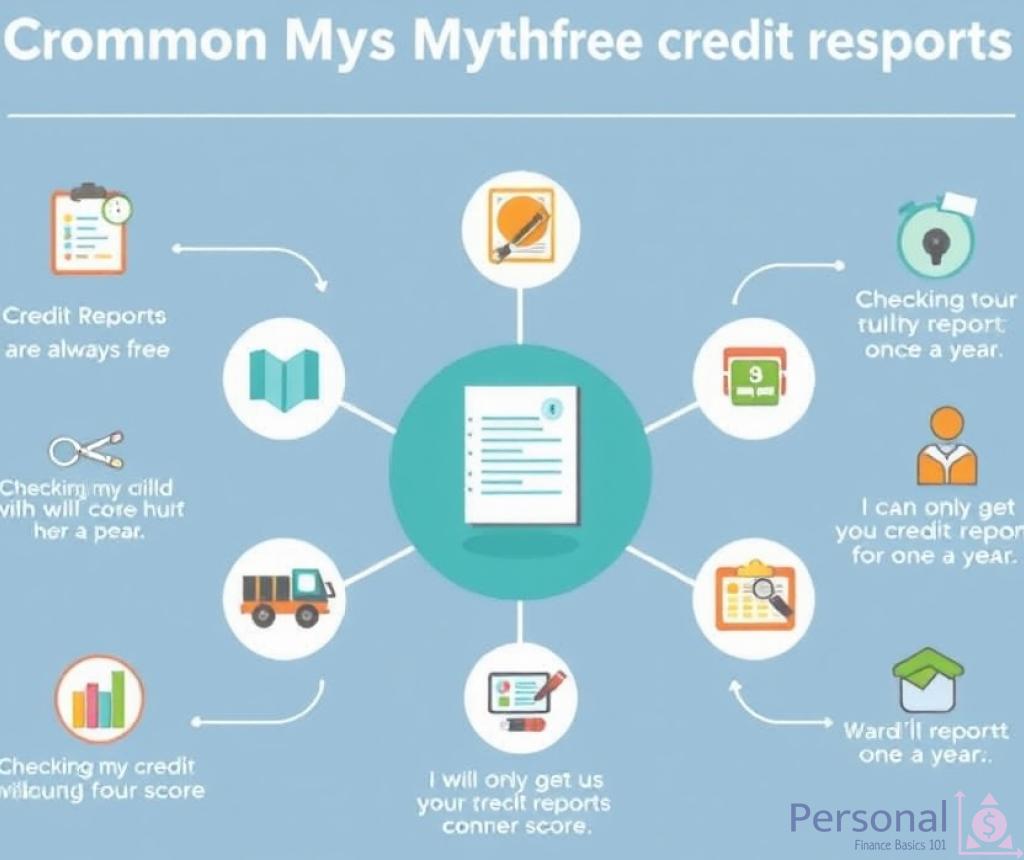Understanding Free Credit Reports
The Importance of Monitoring Your Credit
In today’s financial landscape, maintaining a strong credit score is crucial. It not only affects your ability to secure loans and credit cards but also influences the interest rates you may be offered. Understanding your credit report is the first step in managing your financial health. A credit report provides detailed information about your credit history, including your payment history, the amount of debt you carry, and the length of your credit history. Regularly monitoring your credit report can help you identify errors and potential fraud, enabling you to take corrective action swiftly.
Your Rights to Free Credit Reports
Under federal law, you are entitled to obtain a free credit report from each of the three major credit reporting agencies—Experian, Equifax, and TransUnion—once every 12 months. This initiative was established to promote transparency and allow consumers to stay informed about their credit status. Knowing how to take advantage of this entitlement can empower you to make informed financial decisions.
| Credit Bureau | Website | Phone Number |
|---|---|---|
| Experian | www.experian.com | 1-888-397-3742 |
| Equifax | www.equifax.com | 1-800-349-9960 |
| TransUnion | www.transunion.com | 1-888-909-8872 |
Steps to Obtain Your Free Credit Report
Obtaining your free credit report is a straightforward process. Follow these steps to ensure you receive your reports without hassle:
- Visit AnnualCreditReport.com: This is the only authorized website that provides free credit reports from all three bureaus.
- Fill out the Request Form: You will need to provide some personal information, including your name, address, Social Security number, and date of birth.
- Select Your Reports: Choose which credit reports you wish to view—one, two, or all three.
- Verify Your Identity: You may be asked security questions to confirm your identity.
- Review Your Reports: Once you have access, carefully examine each report for accuracy.
Steps to Access Your Free Credit Report
Accessing your free credit report is not only your right but also a vital step towards maintaining your financial health. With just a few straightforward steps, you can unlock a wealth of information that can help you understand your credit standing and make informed financial decisions. Here’s how you can efficiently access your credit reports from the major bureaus.
Navigate to the Authorized Source
The first step in obtaining your free credit report is to visit the official website designated by federal law for this purpose. This site is AnnualCreditReport.com, the only authorized portal where you can request your reports without incurring any fees. It is imperative to avoid third-party sites that may claim to offer free reports but may lead to additional charges or require unnecessary personal information.
Fill Out the Required Information
Once you’re on AnnualCreditReport.com, you will be prompted to fill out a request form. This form requires personal details to verify your identity. Ensure that the information you provide is accurate and matches what the credit bureaus have on file. The details typically include:
- Your full name
- Your current address
- Your Social Security number
- Your date of birth
Selecting Your Reports
After submitting your information, you will have the option to choose which credit reports you would like to review. You can request reports from one, two, or all three major bureaus—Experian, Equifax, and TransUnion. It’s advisable to obtain all three reports to get a comprehensive view of your credit history. After making your selection, you will proceed to the next step.
Confirm Your Identity
To safeguard your sensitive information, the platform will ask you to answer a series of security questions. These questions are designed to confirm your identity based on the information available in your credit file. Be prepared to answer questions related to your financial history, such as previous addresses or loan amounts.
Review and Analyze Your Reports
Once you have successfully verified your identity, you will gain access to your credit reports. Take your time to meticulously review each report for accuracy. Look for any discrepancies, unfamiliar accounts, or potential signs of identity theft. If you notice any inaccuracies, it’s crucial to address these with the respective credit bureau promptly.
Common Myths About Free Credit Reports

As consumers become more aware of the importance of credit health, myths surrounding free credit reports have proliferated. Understanding these misconceptions is vital to ensure that individuals are not deterred from taking advantage of their rights. Here, we will clarify some of the most common myths associated with free credit reports, providing you with the knowledge needed to navigate your credit effectively.
Myth 1: You Can Only Get One Free Report Per Year
A prevalent belief is that you are limited to just one free credit report annually from each of the three major credit bureaus. While it is true that you can obtain one report from Experian, Equifax, and TransUnion every 12 months, there are additional ways to access your report without cost. For instance, if you are denied credit based on your report, federal law mandates that you can request a free copy. Furthermore, many financial institutions offer free credit reports as part of their services. Thus, savvy consumers can obtain multiple reports throughout the year.
Myth 2: Free Reports Are Not Accurate
Some individuals assume that free credit reports are less reliable than those obtained through paid services. However, this is not the case. All credit reports obtained through AnnualCreditReport.com are identical to those you would receive if you paid for them. The free reports include comprehensive information about your credit history, ensuring you have the necessary details to assess your financial standing. The key is to review these reports carefully for any discrepancies or inaccuracies.
Myth 3: Requesting Your Own Credit Report Hurts Your Score
Another misconception is that obtaining your own credit report can negatively impact your credit score. This is false. When you request your own credit report, it is classified as a “soft inquiry,” which does not affect your credit score in any way. In contrast, hard inquiries, which occur when a lender checks your credit for lending purposes, can influence your score. Therefore, regularly checking your own credit reports is a wise practice that helps you stay informed without any repercussions.
In summary, debunking these myths empowers consumers to take control of their credit health. By understanding the truths behind free credit reports, you can make informed decisions and maintain a robust financial profile.
The Importance of Regular Credit Monitoring
In the quest for financial stability, one of the most crucial yet often overlooked aspects is the regular monitoring of your credit report. Understanding the intricacies of your credit history not only empowers you to manage your financial health effectively but also protects you from potential pitfalls that may arise from inaccuracies or fraudulent activities. Regular credit monitoring serves as a proactive measure that allows you to stay informed about your credit status, paving the way for better financial decisions.
Proactive Approach to Financial Health
Keeping a close eye on your credit report is akin to having a financial safety net. By routinely reviewing your credit history, you can identify trends or changes that may indicate underlying issues. Whether it’s an unexpected drop in your credit score or unfamiliar accounts appearing on your report, these red flags can alert you to potential identity theft or errors that need immediate attention. The sooner you act, the better equipped you will be to resolve these issues before they escalate.
Building a Strong Credit Profile
Regularly monitoring your credit report not only helps in identifying errors but also plays a pivotal role in building and maintaining a strong credit profile. A healthy credit score can open doors to better loan terms, lower interest rates, and increased borrowing capacity. By staying informed about your credit standing, you can make strategic decisions, such as when to apply for new credit or how to manage existing debts more effectively.
Consider the following key benefits of regular credit monitoring:
- Early Detection of Errors: Spot discrepancies in your credit report that could negatively impact your score.
- Fraud Prevention: Identify signs of identity theft before they lead to significant financial loss.
- Improved Financial Decisions: Make informed choices based on your current credit status, leading to better loan and credit card offers.
Enhancing Your Financial Literacy
In addition to protecting your financial interests, regular credit monitoring enhances your overall financial literacy. By familiarizing yourself with the components of your credit report, you gain insights into what affects your credit score and how different financial behaviors, such as timely payments and credit utilization, come into play. This knowledge empowers you to make more informed decisions about your financial future, ensuring you stay on the path to achieving your financial goals.
What to Do If You Find Errors in Your Credit Report
Discovering inaccuracies in your credit report can be a distressing experience. However, it’s crucial to remember that errors can occur and that you have the power to rectify them. Addressing discrepancies promptly not only protects your credit score but also enhances your overall financial credibility. Here’s a structured approach to take when you encounter errors in your credit report.
Steps to Correct Errors on Your Credit Report
Taking action against inaccuracies in your credit report is essential for maintaining a robust credit profile. Follow these steps to ensure that your concerns are addressed effectively:
- Review Your Report Thoroughly: Before taking any action, scrutinize your credit report carefully. Identify the specific errors, whether they relate to personal information, account details, or payment history.
- Gather Supporting Documentation: Collect any evidence that supports your claim regarding the inaccuracies. This may include bank statements, payment confirmations, or correspondence with creditors.
- Contact the Credit Bureau: Reach out to the credit bureau that provided the report containing the error. You can submit a dispute online, by mail, or via phone. Ensure you include your personal details, a description of the error, and the supporting documentation.
- Notify the Creditor: If the error pertains to a specific account, contact the creditor directly. They can assist in resolving the issue on their end and may provide additional support to the credit bureau.
- Follow Up: After submitting your dispute, monitor the status of your claim. The credit bureau typically has 30 days to investigate and respond to your dispute. Stay proactive by following up to ensure your case is being handled.
Understanding Your Rights
As a consumer, it is vital to be aware of your rights concerning credit reporting. The Fair Credit Reporting Act (FCRA) entitles you to dispute inaccuracies in your credit report and requires credit bureaus to investigate disputes in a timely manner. Should the investigation validate your claim, the bureau must correct the errors and provide you with an updated report. Moreover, if your dispute is denied, you have the right to request a statement of the dispute to be included in your report, ensuring potential creditors are aware of your concerns.
Taking Preventive Measures
Once errors are resolved, it’s advisable to adopt preventive measures to safeguard your credit report against future inaccuracies. Regularly monitoring your credit report can help you catch issues early. Additionally, consider placing a fraud alert or credit freeze if you suspect identity theft. These actions not only protect your credit but also provide peace of mind as you navigate the complexities of financial management.
Disclaimer
This article has been created or edited with the support of artificial intelligence and is for informational purposes only. The information provided should not be considered investment advice. Please seek the support of a professional advisor before making any investment decisions.






